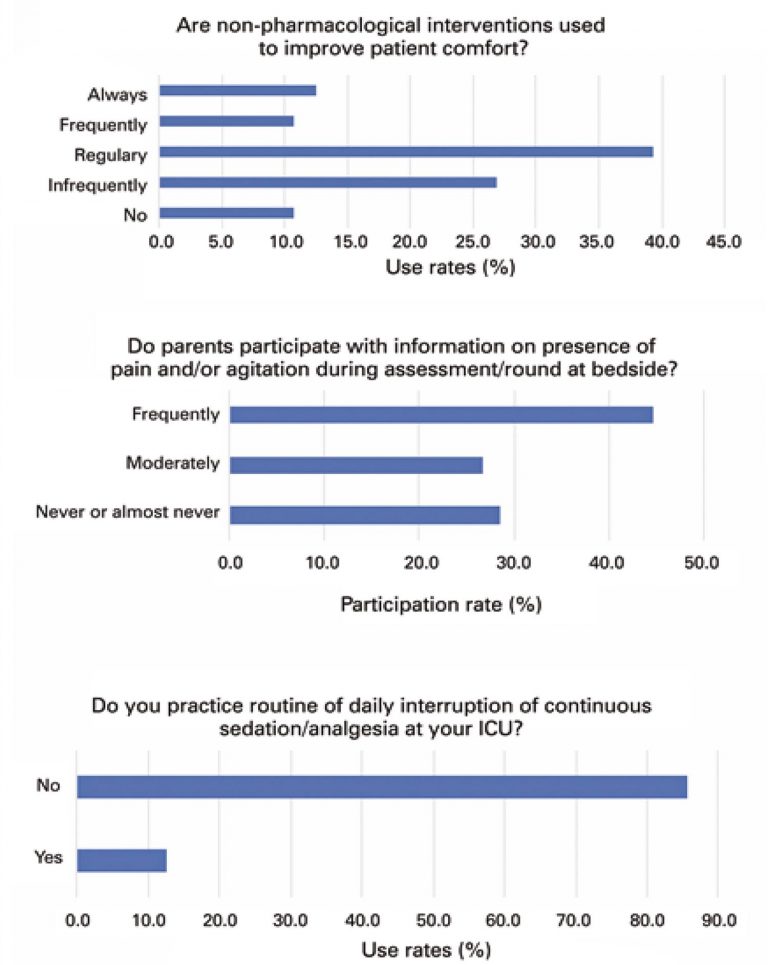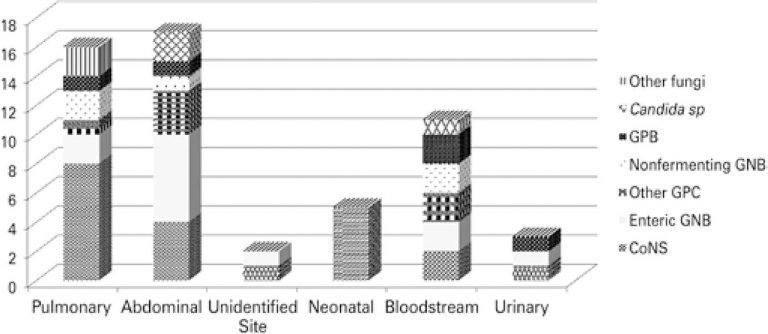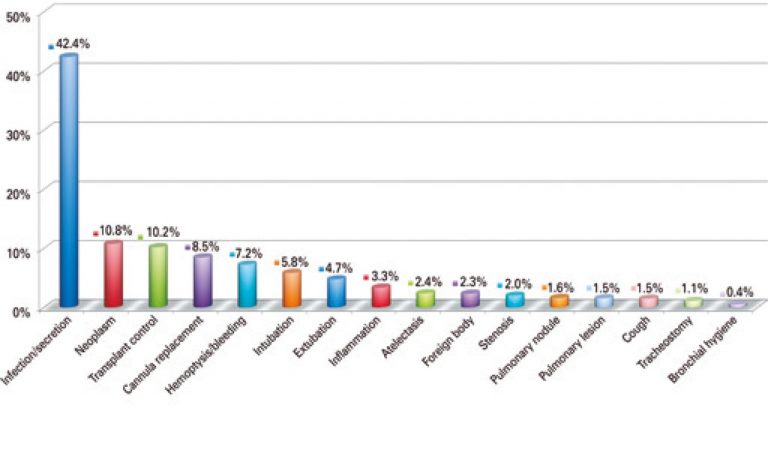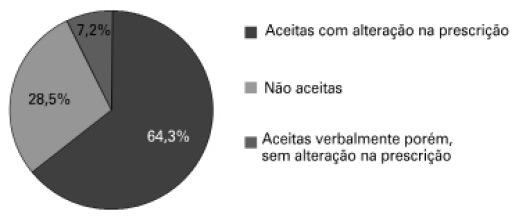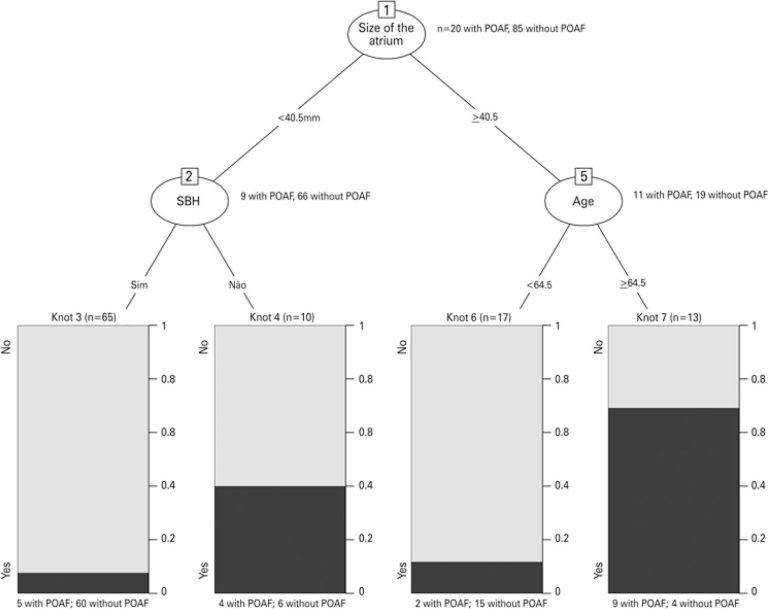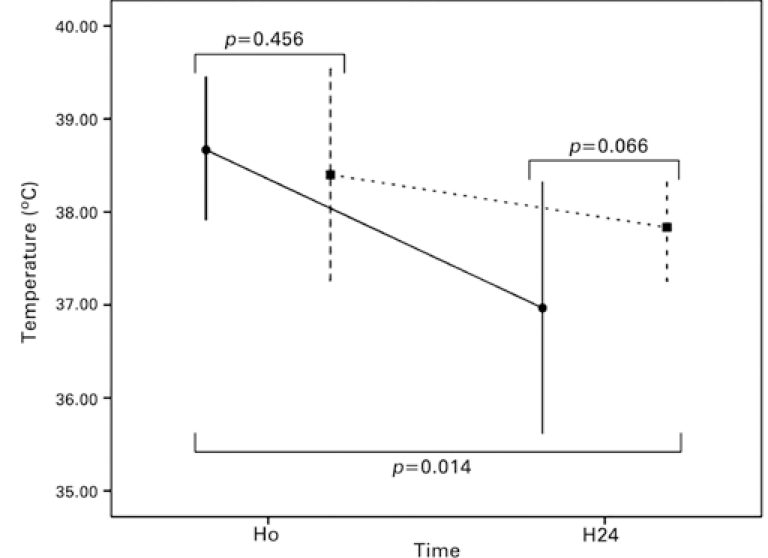22/Jan/2020
Practices related to assessment of sedation, analgesia and delirium among critical care pediatricians in Brazil
DOI: 10.31744/einstein_journal/2020AO5168
ABSTRACT Objective To understand the use of tools, protocols and comfort measures related to sedation/analgesia, and to screen the occurrence of delirium in pediatric intensive care units. Methods A survey with 14 questions was distributed by e-mail to Brazilian critical care pediatricians. Eight questions addressed physician and hospital demographics, and six inquired practices to assess sedation, analgesia, and delirium in pediatric intensive care units. Results Of 373 questionnaires sent, 61 were answered (16.3%). The majority of physicians were practicing in […]
Keywords: Analgesia; Brazil; Child; Critical care; Deep sedation; Delirium; Surveys and questionnaires
Methodological description of clinical research data collection through electronic medical records in a center participating in an international multicenter study

16/Sep/2019
Methodological description of clinical research data collection through electronic medical records in a center participating in an international multicenter study
einstein (São Paulo). 16/Sep/2019;17(4):eAE4791.
View Article16/Sep/2019
Methodological description of clinical research data collection through electronic medical records in a center participating in an international multicenter study
DOI: 10.31744/einstein_journal/2019AE4791
ABSTRACT Data collection for clinical research can be difficult, and electronic health record systems can facilitate this process. The aim of this study was to describe and evaluate the secondary use of electronic health records in data collection for an observational clinical study. We used Cerner Millennium®, an electronic health record software, following these steps: (1) data crossing between the study’s case report forms and the electronic health record; (2) development of a manual collection method for data not recorded […]
Keywords: Anesthesia; Critical care; Data accuracy; Data collection; Electronic health records
29/Mar/2019
Assessment of clinical and epidemiological characteristics of patients with and without sepsis in intensive care units of a tertiary hospital
einstein (São Paulo). 29/Mar/2019;17(2):eAO4476.
View Article29/Mar/2019
Assessment of clinical and epidemiological characteristics of patients with and without sepsis in intensive care units of a tertiary hospital
DOI: 10.31744/einstein_journal/2019AO4476
ABSTRACT Objective To describe the clinical and epidemiological features of patients with and without sepsis at critical care units of a public hospital. Methods A cross-sectional study was carried out from May 2012 to April 2013. Clinical and laboratory data of patients with and without sepsis in the intensive care units were reviewed of medical records. Results We evaluated 466 patients, 58% were men, median age was 40 years, and 146 (31%) of them were diagnosed with sepsis. The overall […]
Keywords: Bacterial infections; Blood culture; Critical care; Sepsis/diagnosis
06/Feb/2019
Near-infrared spectroscopy parameters in patients undergoing continuous venovenous hemodiafiltration
DOI: 10.31744/einstein_journal/2019AO4439
ABSTRACT Objective To investigate the impacts of continuous venovenous hemodiafiltration on the microcirculation in patients with acute kidney injury. Methods A prospective observational pilot study conducted in a 40-bed, open clinical-surgical intensive care unit of a private tertiary care hospital located in the city of São Paulo (SP), Brazil. Microcirculation was assessed using near-infrared spectroscopy by means of a 15mm probe placed over the thenar eminence. Vascular occlusion test was performed on the forearm to be submitted to near-infrared spectroscopy […]
Keywords: Acute kidney injuries; Critical care; Hemodynamics; Microcirculation; Oxygenation; Renal replacement therapy; Spectroscopy, near-infrared
30/Oct/2018
Indications, clinical outcomes and complications of 1,949 flexible bronchoscopies
DOI: 10.31744/einstein_journal/2018AO4380
ABSTRACT Objective To describe indications, clinical outcomes and complications of flexible bronchoscopy. Methods A descriptive observational study of bronchoscopies performed at the endoscopy service of Hospital Israelita Albert Einstein . Demographic (age, gender and origin) and medical (indications and results of endoscopy and diagnostic tests, such as biopsy collection, lavage, cytology and culture) data were analyzed. Electronic medical records with incomplete data or reporting interventional procedures were excluded. Results Over a three-year period (2013 to 2016), a total of 1,949 […]
Keywords: Bronchoscopy; Critical care; Respiratory tract infection
15/Jun/2018
Pharmacotherapeutic follow-up in a respiratory intensive care unit: description and analysis of results
einstein (São Paulo). 15/Jun/2018;16(2):eAO4112.
View Article15/Jun/2018
Pharmacotherapeutic follow-up in a respiratory intensive care unit: description and analysis of results
DOI: 10.1590/S1679-45082018AO4112
ABSTRACT Objective: To describe and evaluate the pharmacotherapeutic follow-up by a clinical pharmacist in an intensive care unit. Methods: A descriptive and cross-sectional study carried out from August to October 2016. The data were collected through a form, and pharmacotherapeutic follow-up conducted by a clinical pharmacist at the respiratory intensive care unit of a tertiary hospital. The problems recorded in the prescriptions were quantified, classified and evaluated according to severity; the recommendations made by the pharmacist were analyzed considering the […]
Keywords: Critical care; Drug prescriptions; hospital; Pharmaceutical services; Pharmacists; Pharmacy service
01/Jul/2017
Interventions of the clinical pharmacist in an Intermediate Care Unit for elderly patients
DOI: 10.1590/S1679-45082017AO3894
ABSTRACT Objective To discuss the role of the clinical pharmacist in hospital care of critical elderly patients. Methods Critical patients aged 60 years and over admitted by the clinical staff to an Intermediate Care Unit were followed-up for 4 months regarding their drug therapies. Medical prescriptions were reviewed daily on the basis of patients’ clinical conditions, with the view to identify opportunities for optimization of drug therapies, contributing to safer prescribing, reduced discomfort and correct and rational use of drugs. […]
Keywords: Critical care; Drug therapy; Health of the elderly; hospital; Pharmacists; Pharmacy service
01/Oct/2016
Predictive factors of atrial fibrillation after coronary artery bypass grafting
DOI: 10.1590/S1679-45082016AO3673
ABSTRACT Objective To analyze predictive demographic and perioperative variables of postoperative atrial fibrillation in patients who underwent exclusively coronary artery bypass grafting. Methods This was a retrospective cohort. We randomly selected 105 medical records of patients who underwent exclusively coronary artery bypass grafting in 2014. Demographic, clinical (preoperative and immediate postoperative) data and related with surgical procedure were collected from medical records. The occurrence of postoperative atrial fibrillation was considered until the third day after the surgery. Variables were analyzed […]
Keywords: Arrhythmias, Cardiac; Atrial fibrillation; Cardiac surgical procedures; Cardiovascular nursing; Critical care; Myocardial revascularization
18/Nov/2014
Should we treat fever in critically ill patients? A summary of the current evidence from three randomized controlled trials
einstein (São Paulo). 18/Nov/2014;12(4):518-23.
View Article18/Nov/2014
Should we treat fever in critically ill patients? A summary of the current evidence from three randomized controlled trials
DOI: 10.1590/S1679-45082014RW2785
Fever is a nonspecific response to various types of infectious or non-infectious insult and its significance in disease remains an enigma. Our aim was to summarize the current evidence for the use of antipyretic therapy in critically ill patients. We performed systematic review and meta-analysis of publications from 1966 to 2013. The MEDLINE and CENTRAL databases were searched for studies on antipyresis in critically ill patients. The meta-analysis was limited to: randomized controlled trials; adult human critically ill patients; treatment […]
Keywords: Antipyretics/therapeutic use; Critical care; Critical illness; Fever/drug therapy; Intensive care units


